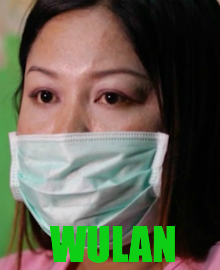The end of Dolly’s glory days
Dolly was nothing like how we pictured it to be. Before its shutdown, people used to say that the Surabayan red-light district was a beacon of sexual liberation in Indonesia, the country with the largest Muslim population in the world.
Ask anyone who visited Dolly in its heyday, and they’ll tell you about the red light district’s raucous and debaucherous atmosphere. Dolly, which is comprised of one main lane that stems into countless other lanes, used to be jam-packed every night with head-pumping disco and dangdut music blaring from every corner. The prostitutes were conspicuously displayed in their brothels like mannequins in storefront windows as far as the eye could see. Anyone could venture into Dolly for its sexual services without having to worry about being judged.
But Dolly, once Southeast Asia’s largest red-light district, is now a ghost town.
The Surabaya city government officially shut down sexual practices in Dolly on June 18, 2014. Surabaya Mayor Tri Rismaharini, who was recently named one of the Best Mayors in the World for “energetically promoting her social, economic and environmental policies in Indonesia’s second-largest city,” was the main force behind Dolly’s closure. Around 1,500 sex workers were evicted from Dolly Lane and the adjacent Jarak Street. Critics said that the shutdown would only drive Dolly’s evicted sex workers underground, bringing about new problems regarding the safety and sexual health of both the prostitutes and their clients. These issues, along with other political and social implications of such an abrupt shutdown, still linger today.
We visited Surabaya five months after Dolly’s official shutdown. There, we met with three prostitutes with very distinct backgrounds, and learned about how their lives were affected in the time since Dolly ceased to be the debauchery capital of Southeast Asia.
(Click on the photos of the sex workers below to read about their stories)
Transforming Dolly
It is during the day that the positive effects of the shutdown become apparent. Kids are now out playing in the open on Dolly Lane. Their parents no longer have to worry about the negative influence of the sex trade going on around them. There were a surprising number of kids in the neighborhood, and one can only wonder how they would have been influenced by the thriving brothels of Dolly’s yesteryears.

Careless and free – parents no longer wary about their kids roaming the Dolly neighborhood
Saving children from the effects of prostitution (and from prostitution itself) is one of the main reasons Surabaya’s Mayor Risma was so adamant about shutting Dolly down.
But the fates of the local adults who depended on Dolly’s sex industry hangs in the balance. Critics argued that the brothel complex’s closure would devastate the local economy and lead to hostile resistance – not just from sex workers, but also from residents in neighborhoods near Dolly.
Surabaya’s Deputy Mayor, Wisnu Sakti Buana, who grew up in a neighborhood next to Dolly, argued that its shutdown has broader implications on the lives of people who weren’t directly involved in the sex industry. He opposed his superior’s plan to shut down Dolly for this exact reason.
“The shutdown was rushed. If the shutdown happens suddenly, what happens to the locals there who are also citizens of Surabaya?” Wisnu said.
“We were thinking about their fates from the beginning. Not the prostitutes, not the pimps. Most of them aren’t from Surabaya anyway. But [this is about] the citizens of Surabaya who make a living in the area, such as clothing designers, laundry owners and parking attendants.”
Now that Dolly has become a ghost town , Wisnu said that people in the neighborhood can no longer rely on tourists for income. The government was so keen to rid Dolly of prostitution that they neglected to consider the economic needs of the locals.
“The reality is that the government only gave financial compensation of Rp 5 million (around US$ 400) each to prostitutes and pimps [to leave Dolly]. The thousands of other citizens affected by the shutdown didn’t get compensated. Why did it end up like this? How did this happen?” he said.
For all its worth, the city government is slowly trying to transform Dolly into a thriving industrial area. When we were there, Dolly had been officially shut down for five months, but only one brothel had been renovated into a working factory.
They named it the Micro, Small and Medium Enterprises Center. It is effectively a small factory that produces whatever is being demanded of them. At the time, the workers there were producing cheap Indonesian soccer cleats.

Dolly’s unskilled locals trying their hands on a government-initiated program
It soon became apparent that there were no former prostitutes being trained and working in this small factory. These new opportunities were only being presented to those who lived in and around Dolly, i.e. locals with official documentation and Surabaya ID cards.
But this was just one small factory that only employed around 100 workers. It may be a start, but it’s not nearly enough to provide for the thousands of other locals who depended on Dolly.
“In reality sex workers and pimps made up only 10% of the number of people who made a living here in Dolly. The other 14,000 people, they still haven’t been dealt with,” said Anis Sadah, a human rights activist who opposed Dolly’s shutdown.
“And up to this moment, this matter hasn’t been touched on, [not even by] human rights institutions.”
The girls
Anis, who wears a hijab, also worries about the sex workers. She believes that the problem of prostitution is a humanitarian issue, not a religious or political matter.
Even after receiving Rp 5 million compensation from the government, many prostitutes, like the girls we interviewed, still had no choice but to keep working in the sex industry. Only now, working in the sex industry in Surabaya presents greater dangers than ever before.
For example. sex workers in Dolly used to receive monthly HIV and STD checks from the city health department. Brothels also generally enforced the government’s “100% condom use” approach to HIV prevention among sex workers. But girls working in Surabaya’s new underground sex trade often report feeling too afraid to force their clients to use condoms.
“Prostitution exists even without anyone protecting it. It’s always there. But this is about how we give the people involved, especially the women, a sense of security,” Anis said.
“They must feel that there’s security for them, that there’s social and health insurance for them. And once they can no longer work here, they can survive on their own. They have to be educated for that.
“Without that education and awareness, there will always be prostitutes coming in and going [out of Dolly].”
The future looks uncertain for Dolly. Opposing forces of industrialization and prostitution are locked in a game of tug o’ war to determine the area’s future. With the government not yet prepared to make major investments for the sake of the people, Dolly and its locals may well be the ones who lose out in the end.
Dolly, then, must take on a new purpose before it becomes nothing but a cautionary tale.







Reader Interactions